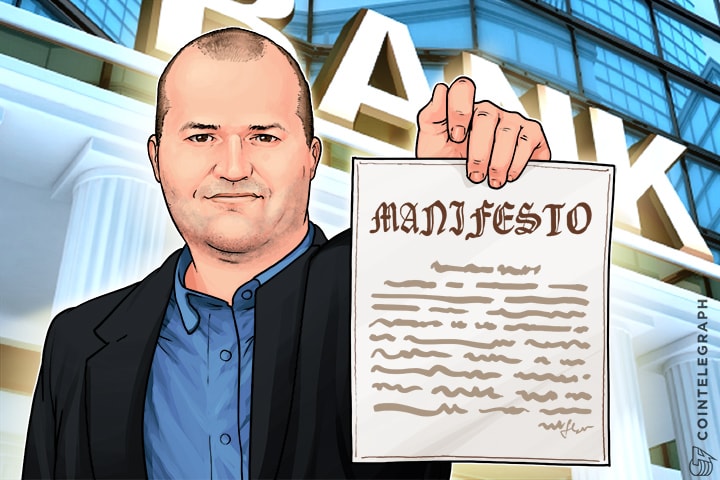Members of the Bitcoin Foundation seem to have taken a swipe at the banking system as reflected in the non-profit’s newly released manifesto.
Made public on Nov. 3, the manifesto cites traditional financial services, especially banking, as not being inclusive for the 2.1 bln people that live on less than $3.10 a day. It also states that electronic payment processing times and fees have been too high which has been the prime reason behind 85 percent of all commerce globally being done in cash.
Poor long-term store of value
Fiat currency has been a poor long-term store of value, especially since the gold standard was abolished. The financial services collapse of 2008 and subsequent banking system bailout caused substantial misery for the poorest of the global population, especially in developing economies with losses associated with card fraud totalling $16.3 bln globally in 2014.
Bitcoin Foundation’s Executive Director, Llew Claasen, says to Cointelegraph via email:
“The current financial system is not perfect and it doesn't serve the needs of everyone who should have access to private, secure, stable and affordable currency exchange and deposit. Banks adopting Blockchain technology does not fix the system. Bitcoin is a gift from Satoshi to all of us and we should embrace it. We think that Bitcoin should be lightly regulated at these early stages of the project and not viewed as anti-bank as Bitcoin will not replace the current financial system, but rather augment it.”
Claasen notes that the ultimate purpose of the new manifesto is to improve Bitcoin adoption as a completely decentralized technology as the Bitcoin Foundation is uniquely positioned to facilitate communication, cooperation and integration towards a shared purpose for the Bitcoin community. It wants to represent the large part of the community that share its values and for which its mission and vision ring true.
Some of the other highlights of the manifesto point towards the insecurity of traditional banking and payments systems, scepticism in traditional banking and financial services being at an all-time high and that every human has the following financial rights which should not be impeded by governments, regulators, financial institutions or other humans.
The members believe in the right to privacy in transactions that involve no harm to others, the right to keep savings or spend money anywhere in the world and economic participation with or without a bank account or with or without a credit history among others.


